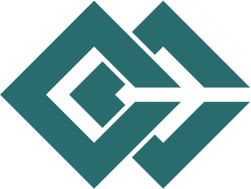France is a great place to study abroad at your level because of its rich culture, gastronomy, engineering, and thriving understudy life Studying in France gives you the opportunity to become familiar with the language and get a social perspective. The experience will give you a chance while looking for a global call and will give your CV a great edge. Focusing on another race can improve your level of competence as it shows potential managers that you are out of your usual level of familiarity, and you can get used to new situations and communities.
10 valid reasons to study in France
-
- Attractive educational costs in France
- Higher education is tailored to the needs of students
- Outstanding job openings
- France is a world-class economic power
- France is home to leading international corporations: Airbus, Total, Orange, LVMH, L’Oréal, Danone…
- The potential of the youth is respected in the areas of development and business
- The French way of life: Paris is a # 1 understudy city! (QS Best Student Cities, 2014)
- French is the third most common language of business
- France is the goal of international student engagement
- 9 out of 10 students worldwide promote France as a research tool (Baromètre Campus France, 2013)
How much does it cost to study in France?
The cost of education in government-funded colleges is set by the French government and is very similar to the nation. If you are a resident or permanent resident of an EEA country, very little has changed – you will be charged a lower fee for your education costs:
- 170 Euros per year for Bachelor’s (License) programs,
- 243 Euros per year for Master projects,
- 601 Euros per year for Engineering courses in certain organizations,
- 380 Euros per year for Doctorate (Ph.D.)
However, any remaining world-class students will currently be charged higher fees for Bachelors’s and Masters’s certificates. The new cost of student education worldwide, which starts in September 2019, is
- 7,770 Euros per year for Bachelor’s (License) programs,
- 3,770 Euros per year for Master projects,
- 380 Euros per year for Doctorate (Ph.D.) programs – the same amount for Europeans.
- Note that the above qualifications apply only to government-funded colleges; the cost to private colleges can be high. In most cases, it ranges from 3,000 to 20,000 Euros each year.
Are there international student grants or scholarships?
Indeed, the French government has also announced that it will increase access to nearby grants at a new cost of higher education. Campus Bourses ’official offer provides a framework for award grants to focus on France.
As a worldwide study from outside the EU, you may need a VLS-TS visa (“radio”). A visa is not suitable for life and focuses in France, but you can also work as long as 964 hours a year (20 hours each week) and travel non-stop to the nations of the Schengen region – a wonderful opportunity to explore Europe.
Do you need to pay for a French understudy visa?
When you apply for a VLS-TS visa, you have to pay 99 Euros. This amount will be expected after your college application, where you have been approved by the school – and you will need a visa before you can go to France for your investigation. If you are from France, you need to accept a visa within 3 months. That costs another 60 Euros.
Schengen understudy visa (temporary stay)
In the event that your exams take less than a quarter of a year, and you are sure that you will not spend any more money in the country, then you should apply for a court hearing, also called a short stay or Schengen understudy visa. Schengen understudy visa is not issued out of pocket and cannot be refunded.
Visa residency placement tests
If you need to take a trip to France to stay at least for college placement exams, you can apply for a visa de court séjour étudiant Concours, which means a visa for a residency test. In the event that you pass your exam and pass, you are eligible to apply for a one-year grant. For more information, contact the accreditation section of the French institution you wish to study at.
Temporary visa stay
A visa de long séjour temporaire pour études is a non-permanent study visa that allows you to study in France for up to half a year. With a French understudy visa, you do not need to apply independently for a home license.
What is the monthly cost of basic necessities in France?
Life without discrimination in France does not need to be expensive. Indeed, even in urban areas like Bordeaux, Lyon or Toulouse you can earn 850 to 1,000 euros per month, including the simplest. That is still limited to European standards. In some very low cities, you can spend very little money. In any case, the release is Paris, the capital: hopefully burn 1,250 to 1,400 euros per month at any rate – and consider yourself incredibly fortunate to have a place in the understudies ‘tunnel’ home.
What are the cut-off times for applications in French colleges?
Traditionally, many colleges set their application times between February and April for degrees that start before the winter of that year. However, in line with the latest French student changes around the world, things can be looked at in particular as opposed to 2019 onwards. Talk to the colleges you need to apply for to be sure without hesitation.
Top ranked universities of France
| Top universities of franceFrance rank | Global rank | University |
| 1 | 52 | Université PSL (Paris Sciences & Lettres) |
| 2 | 68 | Ecole Polytechnique |
| 3 | 83 | Sorbonne University |
| 4 | 138 | CentraleSupélec |
| 5 | 161 | Ecole Normale Supérieure de Lyon |
| 6 | 242 | Ecole des Ponts ParisTech |
| 6 | 242 | Sciences Po Paris |
| 8 | 275 | Université de Paris |
| 9 | 287 | Université Paris 1 Panthéon-Sorbonne |
| 10 | 291 | ENS Paris-Saclay |



